The Autobiography of a
“JEEP”
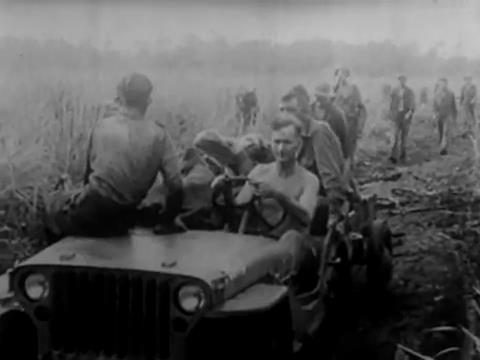
Voice
of John Garfield.
“A new kind
of Army mule on wheels...” A focal character in the war years, 11 x 5 x
3, 60 hp. “Can this be an automobile,
men wondered.” The businesslike conduct of military operations expressed
in a single invention. “I was getting turned out one every two minutes.”
The soldier’s friend, “wherever you see one of us, the other
won’t be far behind.”
A
film as energetic, vital and descriptive in a hundred ways.
murder by contract
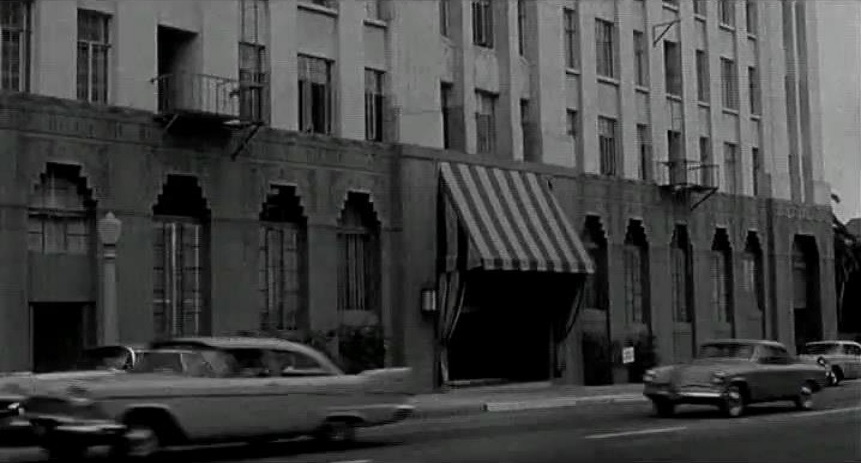
Homage
to secondhand Welles, opening scene
of contractor at his toilette (Journey
into Fear, dir. Norman Foster), score and conclusion (The Third Man, dir. Carol Reed).
“I
don’t even carry a room key.”
“It’s
business, same as any other business, you murder the competition.”
“There’s
lipstick on that coffee cup. I don’t like to drink coffee out of a cup
some lousy pig left her trademark on.”
“He must be
a genius in his own field.”
“He’s
a genius and I’m dyin’.”
“Today
I’m an expert comptometer operator.”
“I
don’t like women. They don’t stand still. When they move it’s
hard to figure out why or wherefore.”
“Watches
TV, does her eyes, reads the newspaper and listens to TV at the same
time.”
“It
wasn’t his fault. It was a good idea, a brilliant idea! High voltage
electricity in a TV set, she turns on the set, BOOM. Very
clever!”
“Now, are you a civilized country?”
“Me? I
didn’t even graduate third grade.”
“What is
this place?”
“It’s
a movie studio.”
“Not much
business.”
Variety, “sufficiently interesting.” Leonard Maltin,
“intriguing little film... ultimately sabotaged by pretentious dialogue and
posturing.” Jonathan Rosenbaum (Chicago
Reader), “an existential hipster”. Tony Sloman (Radio Times), “darkly sinister
plot masks a deeply original screenplay proffering philosophical
insights”. Time Out,
“like something by Jean-Pierre Melville.” The New Yorker, “Lerner
had extensive experience with documentaries when he made this film noir, in
1958, and it shows.” Catholic News Service Media Review Office, “bogs down”.
Halliwell’s Film Guide,
“minor distinction,” citing John Gillett, “completely
unsentimental.”
Sarris, “often the promising work turns out to be
the ultimate work, and Murder by Contract
seems to fall into that category.”
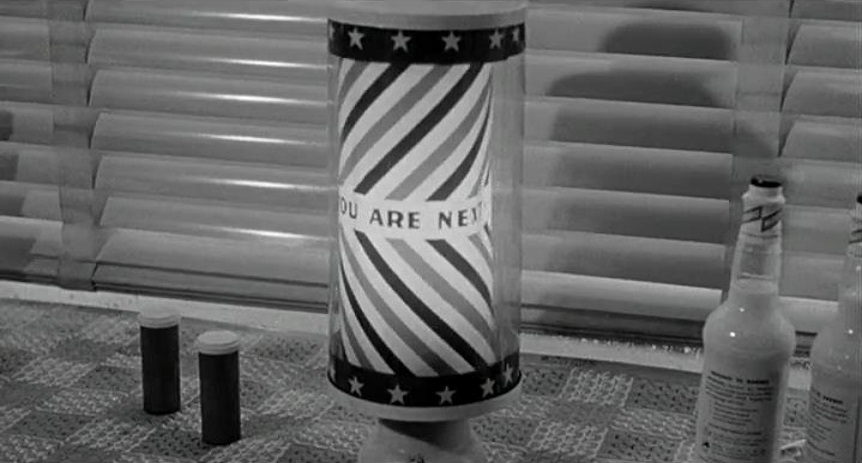
City of Fear
The San Diego
cosmetics salesman on the road from Monterey to Los Angeles with a pound of
heroin, he thinks.
The
transformation scene before the credits tells the story,
two cons from San Quentin, an ambulance driver, the traveling salesman, who
doesn’t know the score (cf.
Kazan’s Panic in the Streets).
Leonard
Maltin, “programmer”.
Time Out, “strong on seedy atmosphere” (with
praises for Ballard and Goldsmith).
TV Guide,
“settles down into a chase”.
Eleanor Mannikka (All Movie
Guide), “standard thriller”.
Halliwell’s Film Guide, “occasionally gripping”.
Studs Lonigan
William,
“Bill”, son, lover, youth in Chicago, life in the mobs (ever so
fleet), subsequent career.
Score by Jerrald “Jerry” Goldsmith doubling for Kurt
Weill (“Cannon Song”). Wexler associate and
consultant, Philip Yordan writing and producing.
“Maybe
I’ll be damn important someday, a politician or somethin’.”
Mozart is a brief
interlude, death and taxes intervene.
“Nobody
ever called me good before.”
The major effort
is applied to the back lot and interior settings of the Nineteen-Twenties for
an immediacy of view emulated in color by Robert Altman (Thieves Like Us), without antiquarian
flavor or nostalgic purpose, the thing seen in its native soil.
“Extra,
extra! Read all about the big
stock market crash!”
Howard Thompson
of the New York Times, “requires real
indulgence.” Variety,
“earnest attempt gone wrong.” Leonard Maltin, “interesting if not altogether
successful”. Pat Graham (Chicago
Reader), “scrubbed-down”. TV
Guide,
“lacks depth.” Eleanor Mannikka (All Movie Guide),
“does not quite do justice to the literary whole.” Halliwell’s Film Guide, “not
a bad try but insufficiently detailed to be any kind of classic.”
Cry of Battle
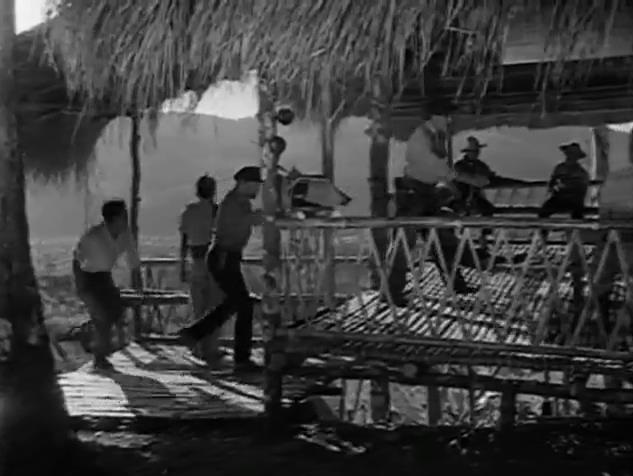
Invasion of the
Philippines the day after Pearl Harbor, bandits and patriots, boy and brute,
contend. “Innocence will get the better of crime,” says Eluard (Guernica, dir. Alain Resnais).
“And, damn
it, you have all the important
qualifications. You can read, you can write, and you can count to a
hundred.”
“Are you tellin’
me—“
“You are
now a lieutenant in the United States Army.”
Cp. Back to Bataan (dir. Edward Dmytryk), They Were Expendable (dir. John Ford), American Guerrilla in the Philippines
(dir. Fritz Lang), and in the force of circumstances Captains Courageous (dir. Victor Fleming) à outrance, just the difference between
war and peace (Eluard, “la mort cœur renversé”).
Samuel Fuller remembers the stumbling American in Tinikling, or the Dragon and the Madonna. The Jap train passing overhead is
from The Bridge on the River Kwai
(dir. David Lean), or for that matter Bhowani
Junction (dir. George Cukor). And speaking of Ford, What Price Glory... The conclusion is where Kubrick begins Full Metal Jacket. “Make war on
war,” says George Bernard Shaw in Major
Barbara (dir. Gabriel Pascal).
“Never
really believed it, all those stories you hear about the Japs.” Question of friendly relations before the war, a doxy for the
duration. “The father of waters again goes unvexed
to the sea,” remembered by Lean in Doctor
Zhivago. “A nasty business,” Eisenhower said of the war in
Europe.
“I guess I
taught you plenty.”
“I guess
you did, Joe.”
Bosley
Crowther of the New
York Times, “I kept waiting for some dramatic purpose, some clear
statement of truth, to crystallize.” Hal Erickson (All
Movie Guide), “static”.
Andrew Sarris (The American Cinema), “Murder by Contract is a minor classic of
murderous understatement, and is all that need be said about Irving
Lerner’s career.”
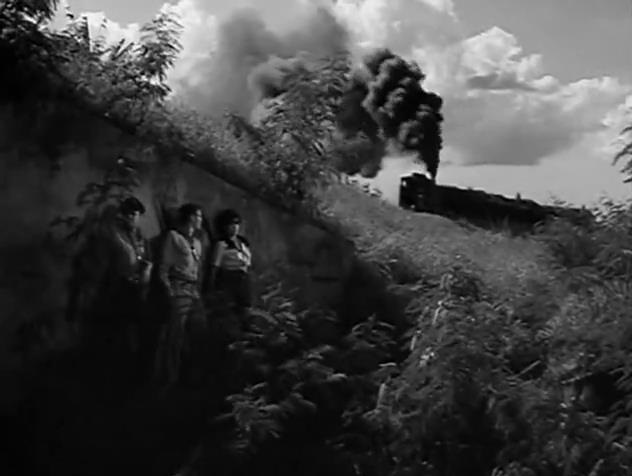
The Royal Hunt of the Sun
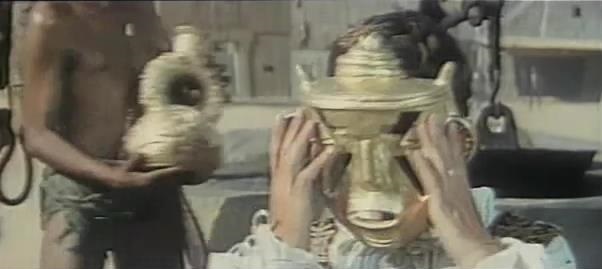
Further explications
by Werner Herzog certainly include Aguirre,
der Zorn Gottes and Fitzcarraldo.
“Your god
is inside you, how can this be?”
“Oh, they eat him. Furrst
he become a bis-a-cuit, then they eat-a him.”
The slow-motion
battle is a year after 2001: A Space Odyssey
(dir. Stanley Kubrick). “Tell me, soft Father, if Christ were here, would He kill the Inca?”
“To save
love in the world, you must kill lovelessness.”
“Hail to
you, Father, sole judge of love! No salvation outside your Church, no love in
it either?”
Baptism of Atahualpa (cf.
Bertolucci’s The Last Emperor),
his death, usurper of the throne, son of Sun and Moon. Before
The Devils (dir. Ken Russell),
departure of one who has seen the light. Before Savage Messiah, sovereign works for the camera.
“The palace
of disinterest has a craphouse,” exults a
foreigner when asked by Army, Church and Crown to kill the prisoner.
Variety, “striking in many ways.” Geoff Andrew (Time
Out), “unwisely ignores the material’s potential”. TV Guide, “talky and
philosophical.” Dan Pavlides (All Movie Guide), “historical
accuracy is cast aside”. Halliwell’s
Film Guide, “deadly literal... resembles nothing so much as an opera
without the music.”